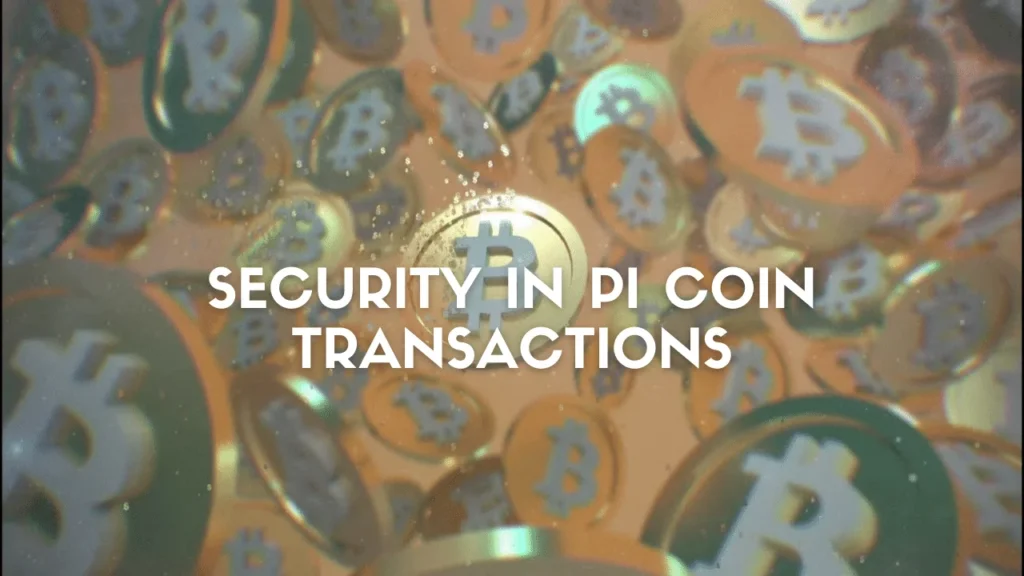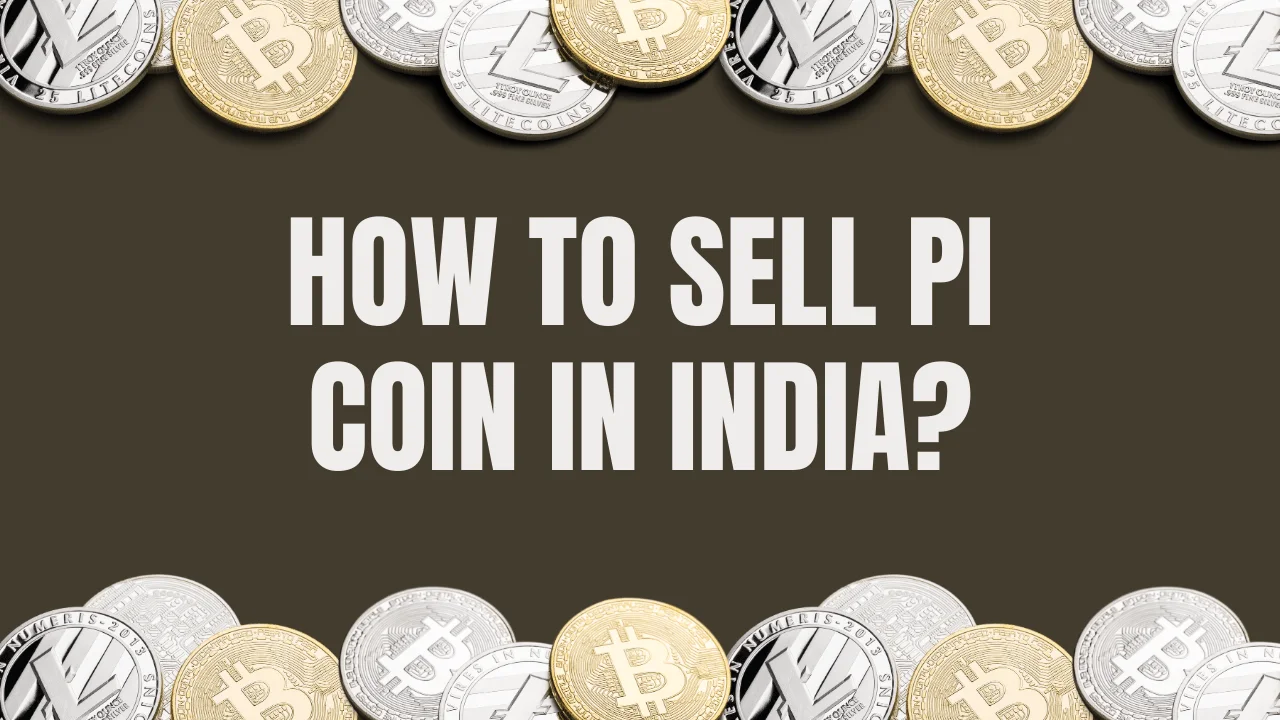In India’s thriving cryptocurrency market, questions like “How to Sell Pi Coin in India?” naturally elicit a great deal of interest and speculation. Given the highly uncertain nature of this market, it is essential to sell Pi Coin with a cautious yet optimistic mindset. Given the complexity of the process, it is highly beneficial to have a detailed guide that incorporates information from Crypto India, Coinweb.com, and CoinCodex. If you are interested in selling Pi Coin in India, this guide will help you navigate its complexities by placing a strong emphasis on methodologies that prioritise security, compliance, and thorough market knowledge.
Pi Coin and Its Market in India

Pi Coin is a new digital currency that stands out from the crowd thanks to its innovative mining mechanism, which lets users earn coins using just their smartphones. The impending listing of Pi Coin on major exchanges, in contrast to more established cryptocurrencies, is shaping its market dynamics in India. Selling Pi Coin in India is like venturing into unexplored territory because there are no such listings as of early 2024.
Peer-to-Peer (P2P) Trading

In India, P2P trading is the foundation of Pi Coin transactions. Sellers and buyers can engage in direct transactions using this method, enabling them to mutually agree upon prices. Learning the ins and outs of peer-to-peer (P2P) trading is the focus of this section, which also highlights the significance of research and the unpredictability of Pi Coin prices.
Acquiring Customers: In order to find people interested in purchasing Pi Coins, vendors frequently use online communities and social media groups that are specifically designed for this purpose. As meeting places for investors and enthusiasts, these platforms facilitate deal-making and deal-planning.
Price Setting: Due to Pi Coin’s speculative value, a cautious approach is required when setting the price. To determine a reasonable price, sellers should monitor market sentiment and possible trends, and they should also listen to what other traders have to say.
Safety First: In peer-to-peer (P2P) trading, safety comes first. Some online platforms offer escrow services, which can add an extra layer of security. However, sellers still need to be careful to avoid scams and make sure the transactions are legitimate.
Communities and Platforms: Making Use of Internet-Based Tools
For Indian Pi Coin traders, online communities and platforms are now indispensable. In addition to connecting buyers and sellers, these communities also give a place to talk about market trends, offer escrow services, and share insights.
Offline Sales

One option that puts an emphasis on transaction security when selling Pi Coin offline is to deal with friends, family, or members of the local community. This section delves into the pros and cons of offline transactions, emphasizing their function in an all-encompassing sales plan.
Benefits of Dealing With People Face-to-Face: You can avoid scams and get your money faster when you do business in person. As a result, customers feel more at ease making purchases online, which isn’t always the case.
Some Difficulties with Traditional Offline Sales Methods: The lack of reach is the biggest problem with offline sales. It might be difficult for sellers to find interested buyers in their immediate social networks, which could result in less favorable transactions.
Current Position in the Law: To fully grasp the significance of Pi Coin and other cryptocurrencies in India, one must be familiar with their present legal standing. To do this, one must keep abreast of the most recent directives given by regulatory agencies such as the Reserve Bank of India (RBI).
Reporting and Compliance: When it comes to tax reporting and compliance, sellers need to be aware of their responsibilities. Part of this is learning the proper way to classify bitcoin transactions and keeping track of the relevant information.
Staying Out of Legal Trouble: Sellers can avoid unknowingly doing anything that Indian authorities could consider non-compliant if they are aware of what constitutes legal trading practices.
Impending Changes in Regulations: To stay in compliance with the ever-changing cryptocurrency regulations in India, sellers should stay informed about any potential changes and adjust their selling strategies accordingly.
Security in Pi Coin Transactions

The safety of Pi Coin transactions must be guaranteed. So that sellers can feel comfortable with their transactions, this section provides instructions on how to protect themselves from common risks.
Reputable Platforms: It is crucial to use trustworthy platforms when buying and selling Pi Coins. These platforms have a proven track record and provide strong security features.
How to Spot and Stay Away from Scams: It is critical to familiarize oneself with the typical strategies employed by cryptocurrency scammers. Included in this category are phishing efforts, phoney platforms, and deals that seem too good to be true.
Practices for a Secure Wallet: Protecting one’s cryptocurrency wallet should be a top priority. Making use of two-factor authentication, creating strong, unique passwords, and being familiar with the security features of wallet providers are all part of this.
Future of Pi Coin Trading in India

There will be advantages and disadvantages to trading Pi Coin in India in the future. Here we take a look at what the future holds for the Pi Coin ecosystem and how it could affect sellers.
Pi Coin’s liquidity and value could be significantly affected by the upcoming mainnet launch of the Pi Network and its possible listing on cryptocurrency exchanges.
New trading platforms and better blockchain technology are two examples of how technological progress is influencing the Pi Coin ecosystem and could improve the buying experience.
Pi Coin’s potential as a tradeable asset is highly dependent on how widely used it is by Indian businesses, consumers, and retailers.
Pi Coin’s trading environment will be greatly impacted by the evolution of cryptocurrency regulations in India. Vendors ought to keep a careful eye on these changes so they can adjust their tactics appropriately.
Building a Community Around Pi Coin Trading

One must not overlook the significance of community in the realm of cryptocurrency. Participating in and making contributions to Pi Coin trading communities has many advantages, which are highlighted in this section.
Being a part of a community lets sellers share and receive information about security tips, market insights, best practices, and other useful resources.
The ability to network with other buyers and sellers is a priceless asset when searching for reliable vendors and customers, and communities offer a great venue for this.
Pi Coin sellers who actively participate in communities are better able to keep up with the latest market trends, regulatory changes, and technological advancements.
Communities provide members with support and guidance, allowing them to overcome obstacles and achieve their trading goals, whether they are new to trading or have been doing it for a while.
Efficient Pi Coin Trading
Technology plays a central role in the trading of cryptocurrencies like Pi Coin. This section delves into the ways in which sellers can leverage technology to optimize the selling process while bolstering security.
In order to save time and make better decisions based on market data, sellers can benefit from trading automation tools.
Protecting sensitive information and transaction details requires the use of secure channels for communication with buyers.
To prevent fraud and unauthorized access, it is recommended to implement advanced security measures such as multi-factor authentication and encryption.
One competitive advantage sellers can have when setting prices and timing sales is by using software that gives real-time market analysis and trends.
FAQs
Is Selling Pi Coin Legal in India?
Selling Pi Coin in India is completely legal, I can confirm that. But, in order to remain in compliance with current laws and guidelines, sellers should keep themselves updated on the most recent cryptocurrency regulations issued by regulatory bodies such as the Reserve Bank of India (RBI).
What Should I Do to Avoid Scams When Selling Pi Coin?
Answer: Be cautious when dealing with unfamiliar buyers, use trustworthy trading platforms with escrow services, and educate yourself on common scam tactics to stay safe. Prioritize safe transactions at all times and be wary of deals that sound too good to be true.
Are There Any Tax Implications for Selling Pi Coin in India?
The answer is yes, selling Pi Coin in India does have tax implications. Sellers of cryptocurrencies are required by law to report their profits in accordance with the regulations laid out by India’s Income Tax Department. To make sure you’re in compliance, it’s best to talk to a tax expert.
Can I Sell Pi Coin Offline in India?
In India, the answer is yes, you can sell Pi Coin offline, usually through personal networks, members of the local community, or acquaintances. Offline purchases may be safer, but they aren’t always the most convenient or cost-effective. It is important for sellers to exercise caution and verify the security of the transaction.
Final Words
Thinking about “How to Sell Pi Coin in India?” is like trying to find your way through a dangerous sea full of guesswork and unpredictable twists and turns. A well-planned strategy, supported by the information and advice in this guide, is required for this process. Prioritising safe transactions and strictly adhering to all applicable regulations are essential for vendors looking to enter the market. There will be major shifts in the way Pi Coin trades in the Indian market as the Pi Network develops further. If you want to make an impression in this uncertain but potentially lucrative industry, you need to know how to sell Pi Coin in India. This is because the market is changing and new opportunities are appearing.

Timothy Jensen is an expert writer who specializes in the world of cryptocurrencies, including blockchain technology and Bitcoin. He has a passion for explaining complex topics in an easy-to-understand way. Timothy’s work aims to demystify the digital currency landscape for his readers.

